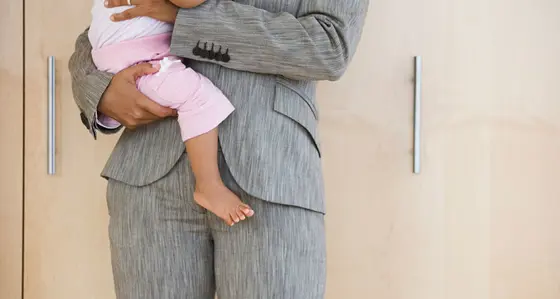
Creating flex to cross cultural divides
4 min read 3 February 2025
Despite living in an increasingly progressive society, it’s incredible that in 2025 we still have to explain cultural differences. Geert Hofstede, who developed the Cultural Dimensions Theory recognised there is no such thing as a good or bad culture, they’re just different. But it’s in making the effort to truly understand those differences, that cross-cultural business success lies.
Travelling to build relationships
I started my consulting career in 1992, setting up my own firm with my partner in 2006. Initially working within the UK public sector, our focus soon became international, and we set up an office in Bulgaria. As cloud computing and program management tools advanced, we began to use technology in a smarter way and embraced a consulting model where we could work from anywhere in the world.
However, we recognised the importance of relationships and how valuable it was to hop on a plane and visit a client. Rather than travelling to work, we were travelling to build relationships.
The meeting of different codes
When we integrated the Baringa Bulgaria specific Business Unit into the global Baringa business in April 2024, marrying the differing codes and national cultures of the two companies was an eye-opening journey. Most notably, in Bulgaria, there's a much higher deference to authority. According to Hofstede, the Power Distance Index (PDI) is about twice that of the UK. And because hierarchy in a formal setting is so highly revered amongst Bulgarians, it’s counter-cultural to speak up or ask contentious questions, particularly in an open forum. Challenging authority is simply not the Bulgarian way.
Compare that to the British approach (and predominantly the Baringa code in the UK). In meetings people are more likely to speak up and challenge – it’s almost like a badge of honour to be the rebel in the room. But we're also terribly polite. When we’re out socially, us Brits can talk for hours without truly getting to the heart of the matter.
Breaking down hierarchical barriers
At first, to overcome this cultural barrier, we tended to employ people who had worked or studied outside of Bulgaria. But, doing that reduced the talent pool. We soon realised we needed to manage the gap by behaving differently – essentially by being ‘a bit less British’.
We started to create an informal environment for discussions. Interacting with our Bulgarian team on a peer-to-peer basis, rather than as a powerful, hierarchical boss, lit up conversations in an incredibly insightful way. Because the British superficial niceness wasn’t there, we would get to the grit of an issue much quicker. Going that extra mile created psychological safety.
Defining local flex
When we originally merged with Baringa in 2021, my partner and I were able to bridge that gap between the two cultures. But as we’ve scaled, many Baringa colleagues are now subconsciously bumping into that cultural difference.
Going forward, there’s value in continuing to maintain a global Baringa corporate culture – because it’s important and exciting to people – but we need to define local flex. For example, Children's Day is a big thing in Bulgaria, but invisible in the UK. By creating a framework that allows the Bulgarian office to celebrate it, despite it not being a wider corporate event, is a small gesture that can have a big impact. And if we establish international Culture Champions, we can explore what the Baringa culture means in different parts of the world and how we enhance these cultures, rather than just imposing UK or global norms.
After making many initial mistakes in Bulgaria, I’ve learnt that when you do get it right it's absolutely synergistic. If you create a space where people want to work – in a company that's progressive, purpose-led, and does all the wonderful things that Baringa does – in a way that's enhancing and respects local cultures and values, magical things can really happen.
More from this series

Supporting different versions of our authentic selves
Parris Lougheed, Executive Assistant, describes her journey as a Black woman discovering the code and finding support throughout Baringa. She believes that rewriting the code must be authentic and allow us to bring our everchanging true selves to work. Parris recently became a parent, and this means discovering a new code, and a new version of her working self.
Read more
Dancing with the code
Sam Bennett, Knowledge Management Advisor, shares exactly what it means to recognise and work within the code. After suffering from imposter syndrome before even starting at Baringa, Sam describes how they were able to become more them at work, how Baringa supported them, and how change now needs to come from the wider industry.
Read more
Wonder Woman doesn’t exist…
Olena Isaieva is happy to admit she is no Wonder Woman. It’s not possible to do everything by yourself, and you shouldn’t try. Our Director in Commodities and Energy Trading in Switzerland credits a strong support system with the success and fulfilment she enjoys, both in her personal life and career. Read on to find out how she is using her own experiences as a woman in male-dominated environments, to support and encourage others at Baringa.
Read more
Freeing the chameleon
From the covert world of law enforcement and intelligence to time in consulting firms big and small, James Hampshire has done his fair share of shape-shifting to fit in. However, following a revelatory diagnosis, James explains how it was time to let go of the mask and reveal his true self.
Read moreRead our Personal Journeys blog

Diversity and inclusion: personal journeys
A series of reflective pieces where brilliant people from within Baringa will share their journeys as individuals or members of our company and community.
Read more


Why I am talking to white people about race
Introducing Jennifer Cook, an expert in organisational and operational transformation and a leader in Baringa’s Ethnic Diversity Network
Read moreIs digital and AI delivering what your business needs?
Digital and AI can solve your toughest challenges and elevate your business performance. But success isn’t always straightforward. Where can you unlock opportunity? And what does it take to set the foundation for lasting success?